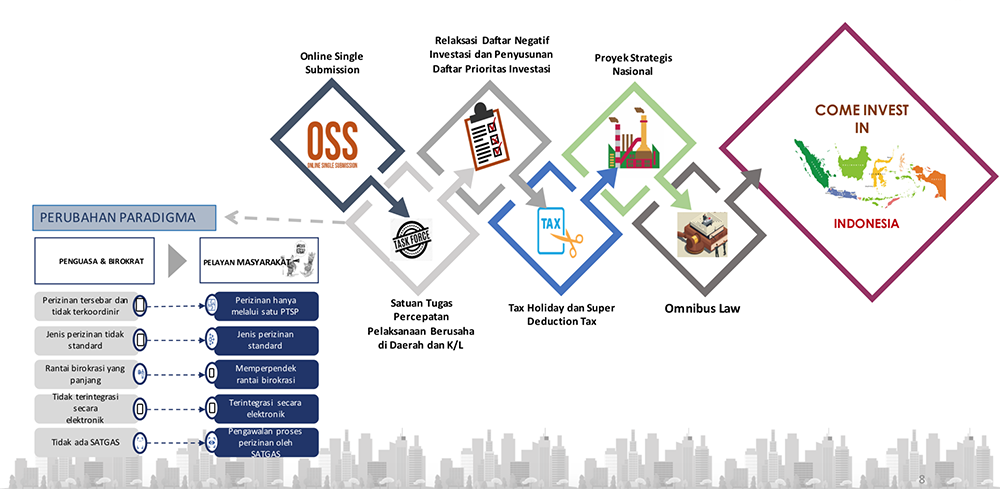
Even though it seems everyone visiting Bali has chosen to make a long weekend out of the New Year celebrations, we’re right back into the thick of things!
If you’ve been following our blogs and stories in 2019, you’ll know we’re positive about Indonesia’s future. We know there are many challenges and we know things aren’t perfect … but at least Indonesia is stepping up to the plate and looking to change things for the better.
So, what can we expect from Indonesia in 2020?
There are two main aspects to consider.
First, is the general world economic outlook.
And second, is Indonesia’s own internal economy and actions taken by the government.
General World Outlook
The world’s financial situation is still cloudy, not least because of the current US-China Trade War. But it seems they are both slowly beginning to understand this will only result in losers in the long run.
Europe has its challenges as well.
Brexit is at the top of the list, but there are also a few European economies close to recession. The EU also has its issues with Indonesia; first over palm oil products and secondly Indonesia’s ban on the export of nickel.
At the end of the day however, the EU needs Indonesia’s products, and Indonesia needs the EU’s customers.
Inside Indonesia
But there is an interesting aspect that has come out of these international trade issues and it may be a good opportunity for Indonesia to capitalize.
When the USA and China started their trade war, Indonesia was quick to fast-track several international trade agreements. In fact, 14 of them in total and some of these are quite significant.
CEPA agreement with Australia
Both parties are currently ratifying the CEPA agreement and there’s a sense of excitement that we’re at the start of a new era, which will allow for a much larger volume of trade between the two countries.
EFTA Agreement
Similar agreements are also being ratified between EFTA (non EU members, Switzerland, Norway, Lichtenstein and Iceland).
The most important country in this mix is probably Switzerland, known for its well-developed banking and finance capacity. There are already signs of other EU based companies looking at setting up in Switzerland to take advantage of the agreement and get around the trade issues between the EU and Indonesia.
This may also happen on a smaller scale with the Nordic countries using Norway as an entry.
Indonesia’s potential
We can already see the impact of companies established in China moving and/or considering moving to Indonesia. One reason is the Trade War but they also see the massive potential Indonesia has as it charges to being the 4th largest economy in the world.
Currently Indonesia has stopped all export of Nickel and the EU is threatening to take Indonesia to international court for breach of free trade principles.
Indonesia’s main motivation to do this though, is because they can make much more on processing their own minerals before they export and may even move towards producing nickel based products.
This may be how Indonesia will approach other raw materials being mined here. For example in the oil and gas industry where Indonesia is processing with its own refineries to reduce the need to import various types of fuel.
Indonesia’s investment climate
These have had a massive impact on Indonesia’s fiscal situation, reducing trade deficits and the need for fuel subsidies; the right things to do to further strengthening the economy.
This in turn will drive more foreign investors into Indonesia in particular investment companies.
Proof of the pudding, so to speak, happened at the opening of the Indonesia Stock Exchange (IDX) on its first day of 2020 trading on January 2. President Jokowi opened the session and announced 55-new companies had listed their shares in the market, stating IDX was the highest in ASEAN, the seventh highest in the world and long-term fundraising had reached IDR 877 trillion (approximately USD 62.64 billion).
Domestically, Indonesia has also taken up its rights to nationalize shares in larger mining companies.
It seems we’re not alone in having a positive attitude! Have a look at these reports from Bloomberg that appear to support this sentiment:
The $14 Trillion Emerging-Markets Rally Has Big Backing for 2020
Indonesian Stocks Expected to Hit Record in 2020: JPMorgan, Morgan Stanley

Cleaning house
With the new cabinet in place Erick Thohir has gone to work sacking several Directors and C-Suite Executives from a number of Indonesia’s state-owned companies, including Garuda and Pertamina in efforts to make them more profitable and therefore, contribute to the state budget instead of draining it.
Significant foreign investment
We published a story at the end of 2019 about Singapore’s Changi Airports International Pte Ltd. being awarded a 25-year concession to operate Komodo Airport in Labuan Bajo.
The consortium will invest IDR 1.2 trillion (approximately USD 86 million) to expand the airport runway, aprons and international terminals.
According to Reuters an additional IDR 5.7 trillion will also be invested into the airport’s operations.
This is the first time Indonesia has allowed foreign operators for an airport and there are strong signs it won’t be the last.
There’s also talk of opening harbours to the same foreign outsourcing.
For Indonesia this means direct income from the BOT as well as top management and support to build its tourism sector and achieve the goal of tourism becoming the country’s number one foreign exchange earner.
Omnibus Law
We are all excited about the Omnibus Law and what impact this will have when regulations are relaxed, especially those around taxation and labour.
The new government is adamant this will be ratified by the National assembly in April.
The Omnibus Law comes with a clear domestic road map. It strengthens BKPM, and the OSS (Online Single Submission) system.
A task force, set up under BKPM and its coordinating minister Luhut, will operate down to the provincial level allowing them to act quickly on any investment issues and challenges.
They will also be able to extend further tax reductions and benefits such as tax holidays and super deduction tax and offer strategic plans for investment and industry in various provinces.
All this will help Indonesia’s economy perform better and make it a more viable and attractive option for investment in 2020.
For more detailed information and overviews on various areas and how we can be of service building bridges for cross border investments by doing the right thing, please touch base at: [email protected]
#indonesia2020 #sevenstonesindonesia #insideindonesia #investindonesia #omnibuslaw #indonesiaeconomy #foreigninvestments #deregulation #easeofdoingbusiness #indonesiagoldenage


